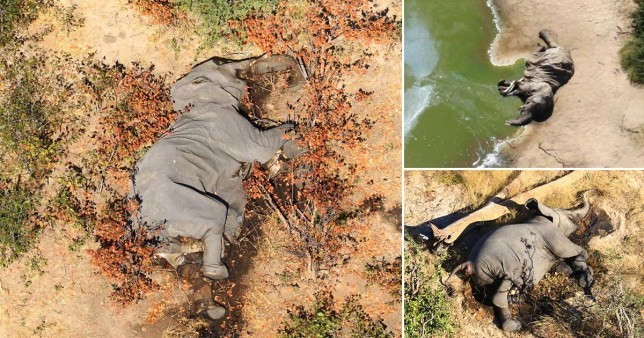In Zimbabwe, elephants started dropping dead, no-one knew why. This has now been solved, but were not any nearer to ending the problem, and now its spreading.

It is unfortunately a fact, that in the majority of instances, sudden deaths from an unknown illness are impossible to prevent until we know more.
In total, 300 died in Botswana with another 35 dying in Zimbabwe just 2 months later. 50 more elephants have died since in Botswana.
It turns out that these animals have fallen as a result of an obscure bacteria, and scientists are concerned that it could spread to other species.
Should something similar happen amongst, say the lions of an area, we could quickly see all the lions die.
It took 3 years but a wildlife veterinarian at the Victoria Falls wildlife trust has worked out what happened. Although initially thinking it was anthrax, it was spreading in a strange way, and killing to many animals.
It turns out that a bacteria called Pasteurella Bisgaard taxon 45 was responsible. It is relatively rare, and had not been known to kill elephants. Unfortunately, in previous heatwaves, similar issues have been known to jump the species barrier and kill large numbers of antelope – particular during a heat wave. This bacteria caused blood poisoning, and mostly killed recently weaned young, which are generally weaker anyway.
It is unfortunate that outbreaks like this are so easily linked to high temperatures, as our behaviour means that these high temperatures occur more often – so deaths like this may become a way of life. Given the slow rate of reproduction in elephants, this could threaten populations if not dealt with rapidly.
The same bacteria is thought to have been responsible for 200,000 saiga antelope dying on the steppe of Kazakhstan in 2015.
Oddly, this bacteria is thought to live happily in the mouths of a variety of animals from elephants and antelope, to lions tigers and even chipmunks. If all it takes for this bacteria to become deadly is an increase in temperature, we have a hard task ahead of us.
Currently, there are 350,000 savannah elephants in Africa, but this number is already declining by around 8% a year (around 26,000 animals each year, or the equivalent of twice the total elephant population of the Kruger national park – one of the largest in the world. While it is possible to turn this around it is not easy.











